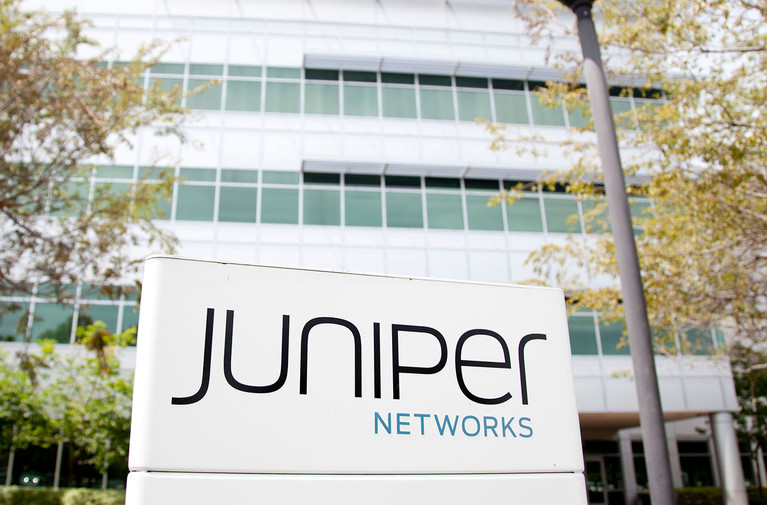State AGs Push Back on DOJ Approval of $14B HPE-Juniper Merger: A Fight Over Antitrust and Influence
On September 5, 2025, a coalition of 20 state attorneys general, led by Colorado’s Phil Weiser, filed a letter urging a federal court to reconsider the U.S. Department of Justice’s (DOJ) approval of Hewlett Packard Enterprise’s (HPE) $14 billion acquisition of Juniper Networks. The states argue that the DOJ’s settlement, finalized in June 2025, was tainted by political influence and fails to address anticompetitive concerns in the wireless networking market. This pushback, detailed in sources like Reuters and the Colorado Attorney General’s office, raises critical questions about antitrust enforcement, market competition, and political pressures in the U.S. tech sector.
The Merger and DOJ Settlement
Announced in January 2024, HPE’s $14 billion acquisition of Juniper Networks aimed to create a networking giant to rival Cisco Systems, combining HPE’s enterprise-grade solutions with Juniper’s AI-driven wireless local area network (WLAN) technology. The DOJ initially sued to block the deal in January 2025, alleging it would reduce competition in the WLAN market, leaving HPE and Cisco controlling over 70% of the U.S. market and potentially raising prices by 14%.
However, the DOJ settled in June 2025, allowing the merger with conditions: HPE must divest a small business unit serving small and mid-sized clients and license certain Juniper AI technologies to competitors. This decision followed internal DOJ tensions, culminating in the dismissal of two antitrust officials, including Roger Alford, who later claimed in a speech that the settlement was marred by “undue influence” from political appointees with ties to the Trump administration.
State AGs’ Challenge: Allegations of Corruption
The coalition, including Arizona’s Kris Mayes and Maryland’s Anthony G. Brown, argues that the DOJ’s settlement violates the Tunney Act, a 1974 law requiring antitrust settlements to serve the public interest and be free of undue influence. In their letter to the U.S. District Court in the Northern District of California, the AGs called for a hearing to examine whether the settlement was “terminally infected” by lobbying from individuals with close ties to the Trump administration. Weiser stated, “If evidence shows the settlement was shaped by inappropriate political pressure, the court should reject it as against the public interest.”
The states contend that the settlement’s remedies—divesting a minor business line and licensing AI tech—are insufficient, as they do not address the DOJ’s own concerns about market concentration and price hikes. Arizona AG Mayes emphasized, “This merger could jack up prices 14% for consumers—designed to benefit a small group of well-funded, corrupt individuals.” The AGs also cite Alford’s public criticism, calling the settlement a “scandal” driven by the “Rule of Lobbyists” over the “Rule of Law.”
HPE and Juniper’s Defense
HPE and Juniper strongly oppose the states’ challenge, arguing that the DOJ’s initial concerns were “fundamentally flawed.” In a January 30, 2025, statement, the companies asserted that the merger is “pro-competitive,” enhancing innovation and choice in the WLAN market, which they claim is robust with at least eight competitors, including well-capitalized players like Aruba and Extreme Networks. They argue that the deal strengthens U.S. national security by fortifying domestic networking infrastructure and enables better competition against global incumbents like Cisco.
HPE’s legal team, backed by industry analysts, contends that the states’ challenge overreaches, as the settlement’s conditions—divestiture and licensing—sufficiently address competitive concerns. They also dismiss claims of political influence as speculative, noting that the DOJ’s process followed standard antitrust review protocols.
Public and Expert Reactions
The dispute has sparked heated discussion. On X, @AntitrustNow posted, “State AGs calling out DOJ’s HPE-Juniper deal is a bold move—will it expose backroom deals?” Meanwhile, @TechFreedom argued, “HPE-Juniper boosts competition, not kills it. States are grandstanding.” Legal analyst Maria Lopez told Reuters, “The states’ push for transparency could set a precedent for scrutinizing DOJ settlements under the Tunney Act.”
Industry experts are divided. The Wall Street Journal noted that some see the merger as critical for HPE to counter Cisco’s 50% market share, while others, like CRN’s Gina Narcisi, warn that blocking the deal could inadvertently strengthen Cisco’s dominance. The Washington Post highlighted Alford’s dismissal as a flashpoint, suggesting it fuels perceptions of political interference.
Implications for U.S. Stakeholders
Economic Impact: The $14 billion merger, if upheld, could reshape the $50 billion U.S. networking equipment market, where HPE and Cisco would control over 70%. Potential price increases of 14% could hit businesses, hospitals, and universities reliant on WLAN technology, raising costs in a $4 trillion economy. Conversely, HPE argues the deal will drive innovation, lowering long-term costs.
Social and Political Fallout: The challenge reflects broader tensions over antitrust enforcement under the Trump administration, with 60% of Americans in a 2025 Pew poll supporting stronger tech regulation. As 2026 midterms approach, the case could amplify debates over corporate influence, especially after Alford’s claim that deputies “perverted justice.”
Global Context: The U.S. ruling could influence global regulators, as Brazil’s approval of a $2.6 billion merger shows a more lenient stance. A stricter U.S. approach might embolden EU and UK authorities to tighten merger controls, impacting tech M&A worldwide.
Looking Ahead: A Test for Antitrust Oversight
The federal court’s decision, expected in late 2025, will determine whether the DOJ’s settlement stands or faces further scrutiny. If the states prevail, a hearing could unravel allegations of political influence, potentially unraveling the merger. If rejected, it could affirm the DOJ’s authority but raise questions about transparency. For U.S. consumers, businesses, and policymakers, the case highlights the delicate balance between fostering innovation and curbing monopolistic power in a tech-driven economy.
